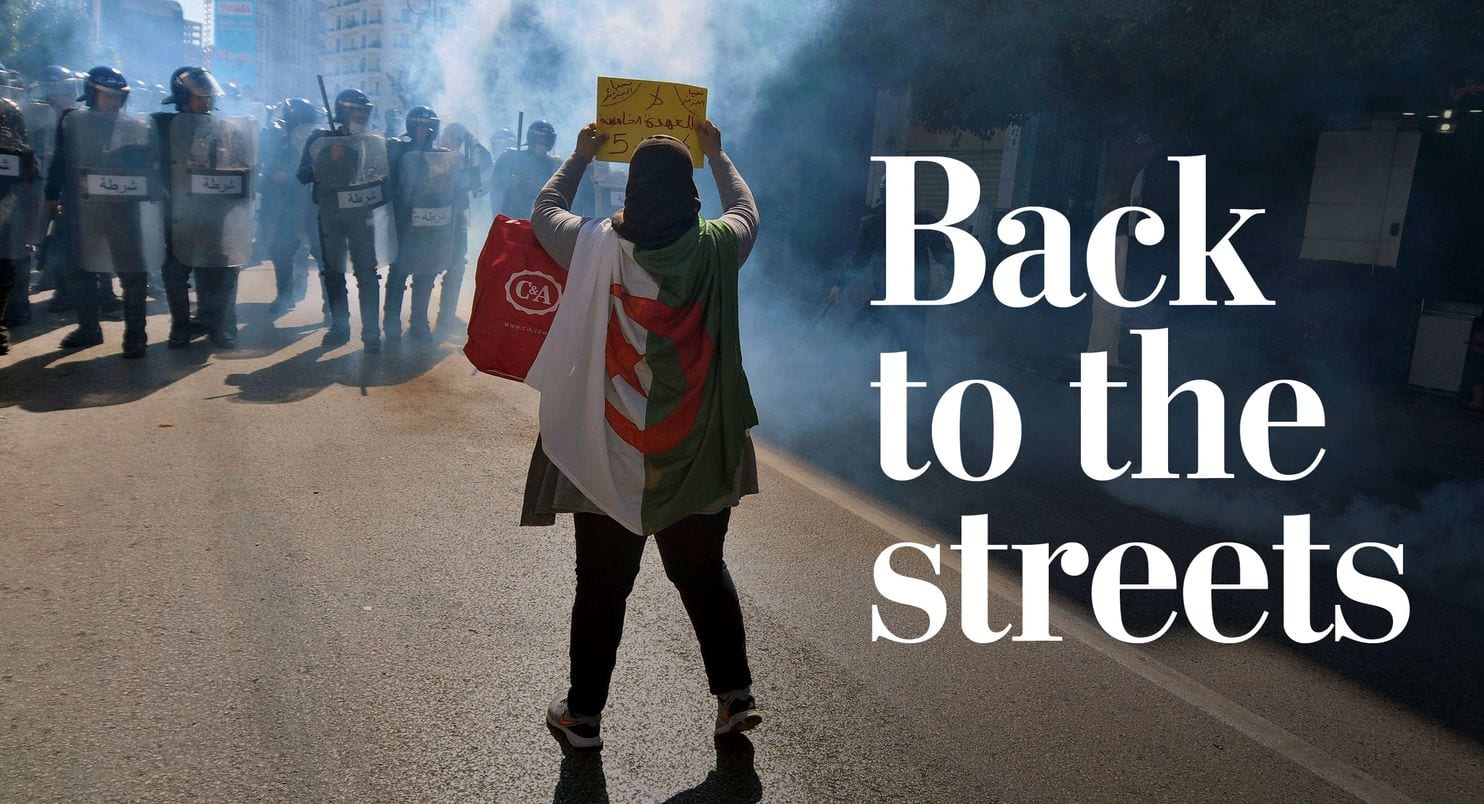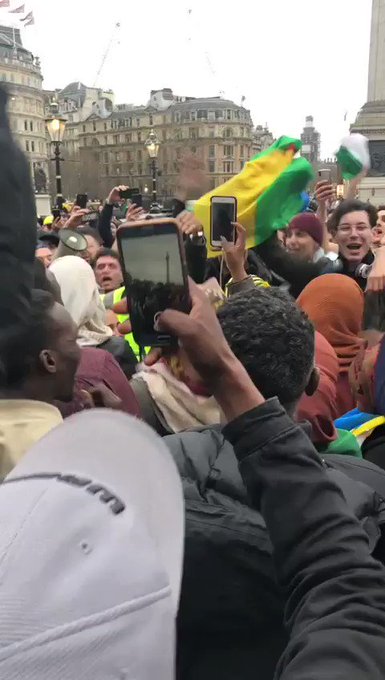The Washington Post
By Ishaan Tharoor
Reporter covering foreign affairs, geopolitics and history
In North Africa and the Middle East, conditions for upheaval remain, but the contexts vary.
Want smart analysis of the most important news in your inbox every weekday along with other global reads, interesting ideas and opinions to know? Sign up for the Today’s WorldView newsletter.
In recent weeks, there have been sustained mass protests against two long-ruling autocratic leaders south of the Mediterranean. In Sudan, three months of demonstrations prompted President Omar al-Bashir to declare a year-long state of emergency and dissolve the country’s federal and state governments in a bid to consolidate his rule.
But protests have persisted, and his position still may be weakening. Some see the end of his three decades in power looming on the horizon. “Many in Sudan’s streets see Bashir’s decision in the past week as a classic mistake repeated by desperate dictators in their final throes, and it raises their hopes that his days are numbered,” wrote my colleagues Muhammed Osman and Max Bearak.
Meanwhile, in Algeria, protests across the country swelled over the past two weeks, calling for President Abdelaziz Bouteflika to abandon his run for a fifth term in April’s elections. Bouteflika turned 82 over the weekend and has been in power since 1999. He suffered a stroke in 2013 that left him using a wheelchair, and he has not spoken publicly in seven years.
Thousands of Algerians took part in renewed protests March 5, calling on President Abdelaziz Bouteflika to resign.
Bouteflika’s ill health offers something of a metaphor for the gerontocracy ensconced in Algeria. Since winning a bloody independence from France in 1962, the once-revolutionary National Liberation Front (FLN) has never relinquished power. Now, the ailing Bouteflika is at the helm of what critics view as a stale regime, buttressed by the military’s top brass, intelligence services and a clique of wealthy businessmen.
In 2011, as political upheaval rocked the Arab world, Bouteflika’s government preserved itself even as dictators were swept away in Egypt and neighboring Tunisia and Libya, using generous subsidies to calm economic tensions, explains Bloomberg’s Bobby Ghosh. But a drop in global oil prices has forced the government to cut back its social spending. “Memories fade, however, and government handouts lose their value with time,” Ghosh added. “Eight years after the Arab Spring, some Algerians may be ready for another revolution.”
“The political, economic and social challenges facing almost every Middle Eastern regime today are worse by orders of magnitude than they were in 2011 — and the structural factors enabling protest contagion remain potent,” noted Marc Lynch in The Post’s Monkey Cage blog. The events in Algeria and Sudan were part of “a broader sequence of popular protest movements that hit more than a third of the countries in the region over the past two years,” including major anti-corruption and anti-government protests in Jordan, Iraq, Tunisia and Iran, Lynch said.
In both Algeria and Sudan, the governments have long and brutal legacies of repression. “Human rights groups say more than 50 people have been killed by [Sudanese] security forces since the protests began in mid-December,” my colleagues reported from Khartoum. “Thousands more — including prominent opposition figures, lawyers, doctors and journalists — have been held indefinitely in a constellation of detention centers run by Sudan’s intelligence service.”
Chanting and singing, tens of thousands turned out March 1 in Algiers to protest Algerian President Abdelaziz Bouteflika’s decision to run for reelection.
The government in Algeria, in particular, has for decades styled itself as a bulwark against Islamist militant groups in North Africa. Its image as a putative anchor of regional stability and its partnership in counterterror operations with European governments led many in the West to overlook its democratic shortcoming and its stifling of dissent.
Since the uprisings of 2011, monarchies on the Arabian peninsula — especially in Riyadh and Abu Dhabi — moved to suppress Islamist or pro-democracy movements in various parts of the Arab world, arguing that they needed to restore order. And they extended sustained support to strongmen, such as Bashir, ignoring their grisly records.
But no matter these regimes’ very real abilities to quash dissent, their survival no longer seems a fait accompli. “As economic and demographic challenges mount, and political institutions have been stripped of legitimacy, regimes that are already exercising maximal repression have few options for escalation,” wrote Lynch. “Even if protests will not diffuse as easily as they did in 2011, there are always potential triggering events — the death of an aging leader, controversial constitutional changes, unavoidable subsidy cuts, even the end of civil wars — lurking on the horizon.”
On Sunday, it seemed the popular pressure in Algeria had won protesters a kind of victory. In a letter read by his campaign manager, Bouteflika announced that he was, indeed, running for a fifth term — one he is likely to win, given Algeria’s less-than-democratic political system. But he indicated he would use his mandate to lead a “national dialogue” that would result in new elections next year, when he will no longer participate.
“This letter is Bouteflika’s first response to the protests, and a clear acknowledgment that, in effect, their reasons are valid,” tweeted Andrew Lebovich, an expert on North Africa at the European Council on Foreign Relations. But, he added, it “doesn’t leave a lot of room for maneuver if the protests continue despite this.”
In Sudan, experts warn that Bashir may find his decision to hand temporary power to military proxies to be his undoing. “The officers entrusted now with government are more or less the ones you would be worried about to mount a coup,” Magdi el-Gizouli, a Sudanese political analyst, told The Post.
If not, protesters still vow to return to the streets. “Bashir’s latest move is nothing but an attempt to stay in power in order to avoid prosecution for the crimes he committed” said Salah Shoaib, a spokesman for the main organization driving the protests. “We will continue the struggle to get rid of the regime and rebuild the country with new democratic institutions.”
Want smart analysis of the most important news in your inbox every weekday along with other global reads, interesting ideas and opinions to know? Sign up for the Today’s WorldView newsletter.











